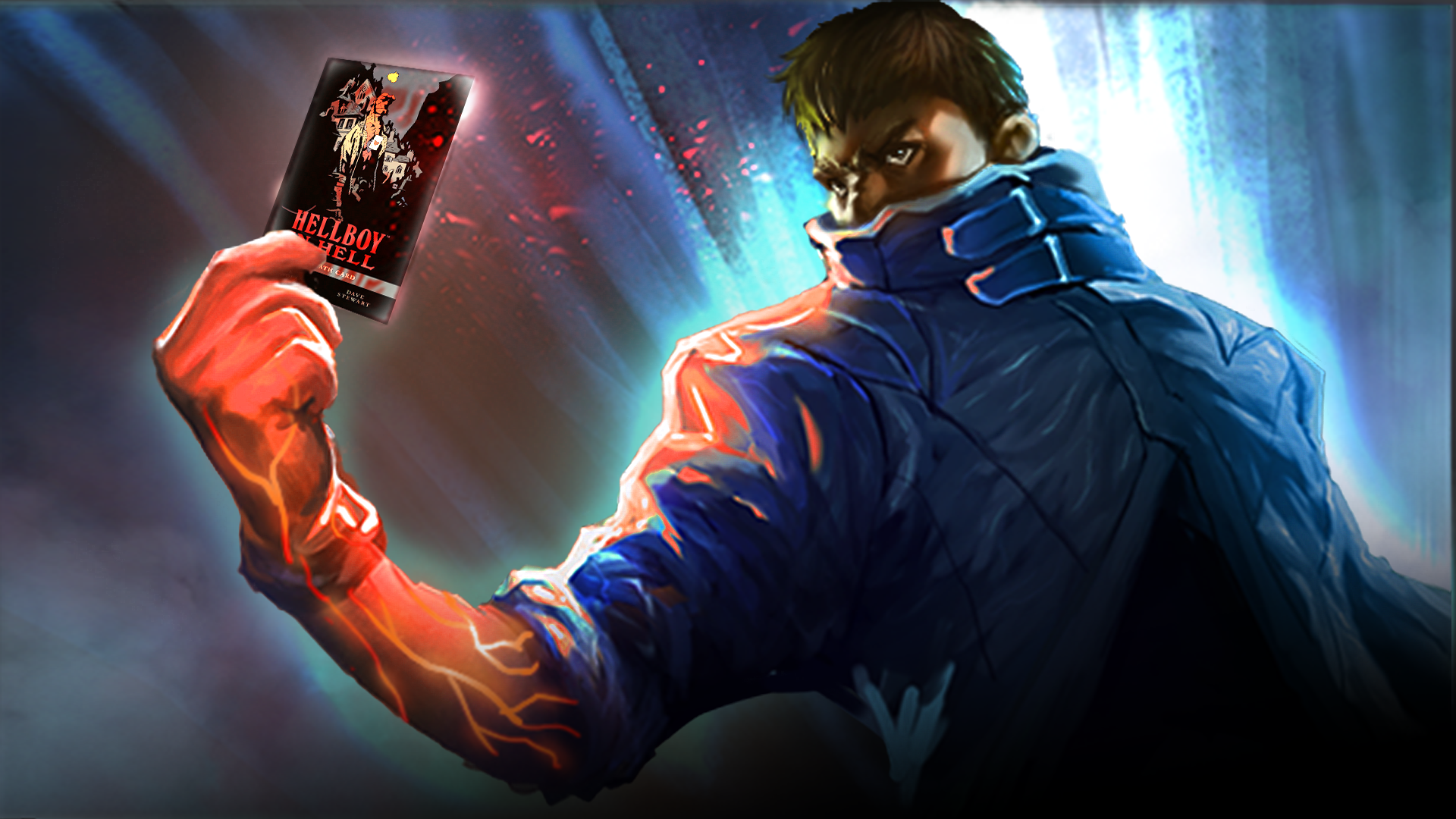Leap of Fate’s narrative inspiration

Although the game is action-focused at its core, it also contains a strong narrative aspect. And this is what I’d like to share with you in this post.
At Clever-Plays, we have always been big fans of comic books of all sorts, ranging from Tintin, Asterix, Marvel, DC, and manga to a slew of indie titles and to more mature graphic novels. Mixing drawings with stories usually creates something magical that draws you in powerfully.
With respect to Leap of Fate, and to me in particular as the game’s writer and designer, there is a handful of titles that have had a strong impact on me, chief among those were Hellboy, Hellblazer and The Books of Magic.
![]()
So, what do these titles have in common? I’d say a mature exploration of magic or supernatural events in a real world setting. These three series do a wonderful job of letting you follow characters who live in our own reality, who are real human beings (well, Hellboy is borderline here …), but who must deal with forces that regular people can only dream about.
There exist so many myths, stories and conspiracies around us, and they make our real world a fascinating canvas for storytelling. The illuminati, the HAARP station, esoteric and hermetic teachings, Nostradamus’ prophecies, miraculous healings, The Philadelphia experiment, psychics. The list just goes on and on, and it is fascinating to explore.
And yet, this is a severely underused theme in games and movie, with the vast majority of magic-themed entertainment taking place in a medieval fantasy setting, usually featuring fireball wielding mages and a great evil that threatens to conquer the world. Nothing wrong with that, but we tried something different.
More precisely, Leap of Fate asks the question: What if magic really existed in our world and was hidden in plain sight to all except those who know what to look for? To explore this fantasy, we delve into the life of a fugitive mage named Dusk. He just fled from the Cabal, an overly tyrannical secret society, and he hides in the alleys of New York City, stuck between normal life, which he does not belong to, and the arcane circles of those who are after him. But he is not aimless. He wants to reach a hidden temple that, according the myth, will meaningfully alter his fate.
![]()
Another element that we took straight out of comic books is the concept of alternate realities. It’s always fun to speculate about what would happen if history had unfolded differently, and companies like Marvel and DC have been very successful at that.
In Leap of Fate, there is a large number of cinematic endings, which we call Fates (hence the play on words of the game’s title). Depending on what character you play, what achievement you unlock, what magical upgrades you manage to create, and how well you perform, different Fates will be triggered.
For me as a writer, this is incredibly stimulating. Let’s take Dusk, the main character. What if he ended up becoming a powerful and respected mage in the arcane circles of NYC? Or what if he exited his trials with vengeance on his mind and decided to go after the Cabal that previously scared him emotionally, thus starting a grueling underground war? Or what if an artifact that he picked up during gameplay actually was a trap designed by a powerful occultist, which now takes control of his mind and turns him into a slave to perform ruthless killings? Possibilities are endless, and we chose to take advantage of that fact.
So there you have it. Hopefully, you’ll be as entertained as we are by Leap of Fate’s storytelling.
Originally posted on Siliconera : http://www.siliconera.com/2014/05/17/leap-fate-comic-books-videogame/




